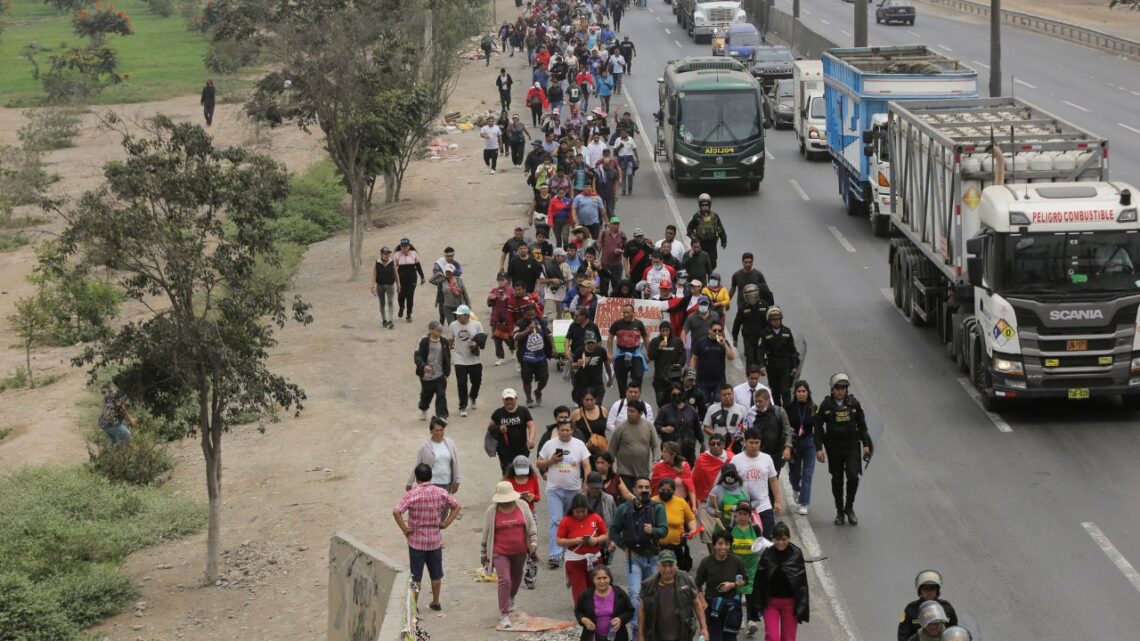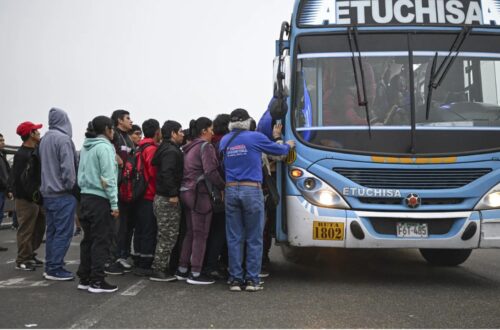Public transportation in Lima, Peru, came to a near standstill on Monday, October 7, 2025, as several transport unions launched a large-scale strike.
The protest was organized to demand stronger government action against rising cases of extortion targeting bus drivers and transport owners. Streets in several districts were left empty as buses stayed off the roads, affecting thousands of commuters who rely on public transport daily.
The strike, called by multiple transport federations, has drawn national attention, highlighting growing fears among workers about violence, threats, and illegal payments demanded by criminal groups.
Why Are Drivers Protesting?
Transport workers say that criminal groups, often referred to as “collectors” or “gota a gota” gangs, are demanding daily or weekly payments from drivers and vehicle owners. Those who refuse to pay face threats, assaults, or vehicle attacks.
Union leaders claim that dozens of bus and taxi drivers have been assaulted this year alone. According to recent reports from Peruvian police, the number of extortion cases in Lima has risen by over 40% compared to last year.
They argue that authorities have failed to provide adequate police protection or surveillance, especially in dangerous districts like San Juan de Lurigancho, Comas, and Villa El Salvador.
Impact on Daily Commuters
The strike caused major disruptions across Lima. Many routes were left without service, forcing residents to walk long distances or depend on taxis, motorcycles, or informal minibuses that charged double or triple the usual fare.
Schools and offices reported delays and absences, and traffic was unusually light in the city’s main roads. The South American nation’s capital, which is home to over 10 million people, heavily relies on buses and colectivos for everyday transportation.
Government Response
The Ministry of Transport and Communications (MTC) urged workers to return to service, saying that public safety operations were being reinforced in collaboration with the National Police. Officials also mentioned that new security cameras and patrol units will be added to monitor high-risk routes.
Meanwhile, Interior Minister Walter Ortiz met with union leaders to discuss short-term protection measures, such as installing GPS systems in buses and creating a direct emergency hotline for transport workers to report extortion threats quickly.
Strike Details and Areas Affected
Here’s a simple summary of the strike schedule and key affected areas:
| Date | Event | Main Districts Affected | Expected Impact |
|---|---|---|---|
| October 7, 2025 | Start of strike | San Juan de Lurigancho, Comas, Villa El Salvador | 70% of buses halted |
| October 8, 2025 | Continuing protest | Cercado de Lima, Los Olivos | 50% reduced services |
| October 9, 2025 | Negotiations | MTC Headquarters | Possible service restoration |
| October 10, 2025 | Planned resumption | All districts | Gradual return to normal |
Union leaders warned that if no concrete action is taken, they might extend the strike nationwide.
Voices from the Streets
Several bus operators told local media that they feel abandoned by the government. One driver from the Cerro Colorado route said, “We just want to work without fear. Every day, someone gets threatened or beaten because they didn’t pay.”
Passengers also expressed mixed feelings — some supported the protest, while others said the strike left them stranded and struggling to reach work or school.
The Peru transport strike shines a light on the serious security crisis affecting thousands of public transport workers. The growing threat of extortion, violence, and criminal control over the transportation sector has pushed unions to demand immediate protection and reforms.
Unless the government acts swiftly and decisively, such strikes may become more frequent, deepening the struggle of ordinary citizens who depend on buses every day.









